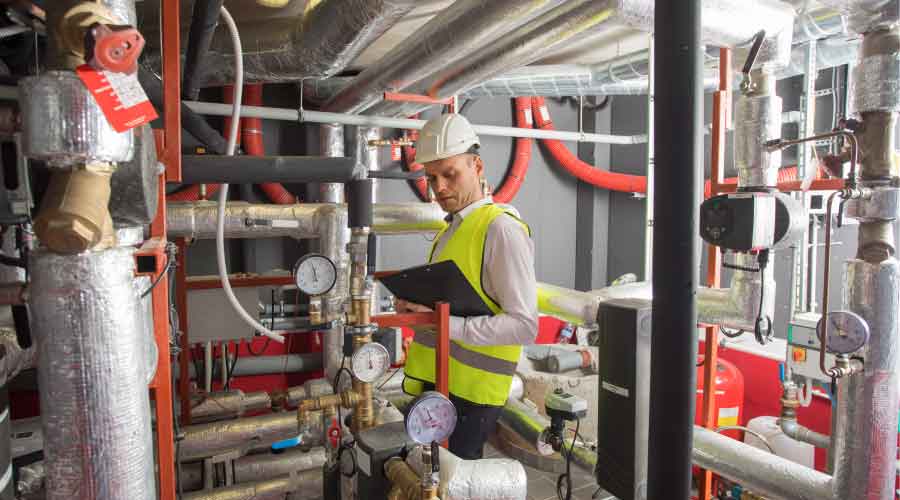
Energy efficiency is a key benefit of making sure pumps are optimized and operating as intended.
Institutional and commercial buildings include pumps as part of heating, cooling, chiller, water pressure boosting, fire safety systems, and wastewater systems. These pump-based systems consume more than 35 percent of a commercial building’s energy. In an ever-increasing energy-efficiency conscious world, reducing the energy required to provide critical water supply, comfort, and water disposal services in institutional and commercial buildings are a high priority.
Water conservation and energy conservation are key issues that impact the design and implementation of water systems in commercial buildings. Poor application of the pumps, flow control, and motors can lead to inefficiency and wasted energy. Therefore, optimizing pumping application and operations is increasingly fundamental.
Pump system assessments are the primary ways to optimize a pumping system and identify problem areas that, when corrected, can provide the greatest opportunities for energy efficiency improvements. A thorough system assessment identifies energy efficient upgrade opportunities that usually pay for themselves in a few years, thus lowering overall energy costs while increasing reliability, and reducing downtime and maintenance costs. For high performance buildings, the assessment process helps to verify that the owner’s energy efficiency goals have been met and that the building systems are performing as intended.
The pump system assessment process can be divided into four equally important, major tasks: pre-screening; development of the assessment team; detailed measurement, data gathering and analysis; and reporting. Two more steps following the assessment are important: the implementation of optimization recommendations, and measurement and verification.
The importance of such assessments can’t be minimized. When pump systems are not optimized, it impacts the bottom line with increased maintenance, lost production, and higher energy costs. System optimization improves reliability and reduces energy consumption while improving process control to meet the process requirements.
The problem is that it’s not always apparent what systems need optimization, and the expertise often doesn’t exist on staff to determine which systems need to be optimized or how to optimize them. The key to unlocking the savings starts with a holistic assessment from a certified industry professional with the experience and expertise to evaluate and optimize the overall pump systems in your facility.
The Hydraulic Institute (HI) developed the Pump System Assessment Professional (PSAP) certification program, which sets the standard for the knowledge, skills, and abilities necessary for industry professionals to perform pump system assessments, and implement pump system optimization techniques. See pumps.org/psap for a list of certified professionals or to learn more about PSAP certification.
By Michael Michaud, contributing writer
Michael Michaud is Executive Director, Hydraulic Institute.
The post "Why Assessing Pump Systems Matter" appeared first on Building Operating & Management







0 Comments